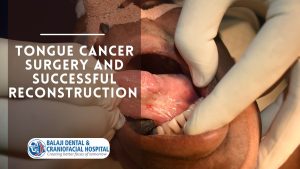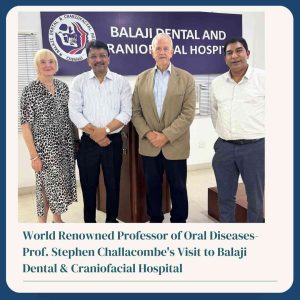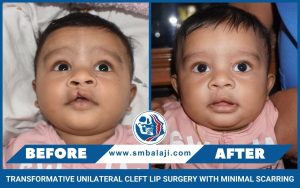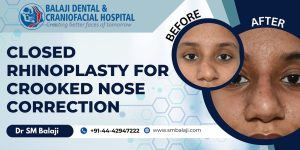[et_pb_section fb_built=”1″ admin_label=”section” _builder_version=”3.22″][et_pb_row admin_label=”row” _builder_version=”3.25″ background_size=”initial” background_position=”top_left” background_repeat=”repeat”][et_pb_column type=”4_4″ _builder_version=”3.25″ custom_padding=”|||” custom_padding__hover=”|||”][et_pb_text _builder_version=”4.9.2″ _module_preset=”default” hover_enabled=”0″ sticky_enabled=”0″]
OPEN VS CLOSED RHINOPLASTY : WHICH TECHNIQUE IS BEST?
RHINOPLASTY AS A LIFESTYLE CHOICE TO ENHANCE QUALITY OF LIFE
Open vs Closed Rhinoplasty: Undergoing a nose correction surgery or a nose job is often a life-changing experience for an individual. A rhinoplasty can change a person’s life for the better or the worse. Many show-biz celebrities from around the world have seen their careers soar or collapse as a result of a rhinoplasty.
NEED FOR EXTENSIVE PRESURGICAL COUNSELING REGARDING EXPECTATIONS
Individuals who present for a cosmetic rhinoplasty have certain expectations about the results. It is imperative that they discuss these expectations in detail with the surgeon during the treatment planning phase itself.
TYPES OF RHINOPLASTY FOR NASAL DEFORMITY CORRECTION
There are two types of rhinoplasty procedures, namely open rhinoplasty and closed rhinoplasty. Open rhinoplasty involves making an incision in the soft tissue between the two nostrils. This allows for easy access to the bony and the cartilaginous parts of the nose. Closed rhinoplasty involves making incisions inside the nose.
INDICATIONS FOR CLOSED AND OPEN RHINOPLASTY
Extreme deformities of the nose are addressed through open rhinoplasty. An open rhinoplasty allows for greater manipulation of the structures that give form to the nose. Lesser deformities of the nose are addressed through closed rhinoplasty. There is minor visible scarring from an open rhinoplasty. There is no scar formation in a closed rhinoplasty as all incisions are made inside the nose.
The recovery period is longer in open rhinoplasty with more postoperative swelling when compared to closed rhinoplasty. This is due to the greater degree of corrections performed through open rhinoplasty.
IMPORTANCE OF EXPERIENCE OF SURGEON IN COSMETIC NOSE SURGERY
Certain cases that have a complicated presentation can be addressed only through open rhinoplasty. Closed rhinoplasty cannot be performed for the correction of deformities in these cases; however, a vast majority of nasal deformities can be set right through closed rhinoplasty. Surgeons with greater experience can correct even large deformities through a closed rhinoplasty while these corrections are approached through an open rhinoplasty by lesser experienced surgeons.
The average cost for open rhinoplasty is Rs 2,00, 000 and the average cost for closed rhinoplasty is Rs 1,50, 000.
[/et_pb_text][et_pb_text _builder_version=”4.9.2″ _module_preset=”default” custom_margin=”||0px||false|false” custom_padding=”||0px||false|false” hover_enabled=”0″ sticky_enabled=”0″]
Closed Rhinoplasty with Nasal Augmentation – Cleft Lip Deformity
Patient born with a unilateral cleft lip and palate deformity
The patient is a 20-year-old female from Palakkad in Kerala, India. She had been born with a right-sided cleft lip and palate deformity. Her parents had been extensively counseled on the management of an infant with a cleft deformity. They had been referred to a nearby city for surgical management of her cleft deformity.
She had subsequently undergone cleft lip repair at 3 months of age and cleft palate repair at 11 months. A plastic surgeon had performed these surgeries. The patient had subsequently developed speech difficulties for which she had undergone pharyngoplasty. Bone graft surgery is needed if there is a large cleft alveolus deformity.
Worsening nasal defects with the passage of time
As the patient grew up, her nasal deformities worsened. She had a nose that was flattened and asymmetrical. This was a direct result of the collapse of her columella. Her right alar region was also depressed due to a bony defect. Cleft nasal deformities involve both bone and cartilage. They are the most common form of birth defects.
There was prominent scarring from the cleft lip repair surgery. The patient felt that this detracted from her facial esthetics. It was explained to her that a scar revision surgery can be scheduled at a later date to address that.
Surgery for correcting her nasal deformities done elsewhere
The patient had first undergone cosmetic rhinoplasty (nose job) at the age of 14. This was to correct her severely depressed nose, which was also asymmetrical. Multiple cartilage grafts had been harvested and used in this corrective surgery. She had however not been happy with the end results of the surgery.
A couple of years later, she had undergone a redo rhinoplasty at a different hospital. The old grafts had been removed and replaced with new grafts. This had however worsened the appearance of her nose. She does not require open rhinoplasty.
Her nasal deviation had become worse and she developed a whistling sound while breathing. Her alar base depression had not been addressed by either surgery.
The patient feeling despondent and depressed as a result of the two failed surgeries
Feeling extremely upset by the turn of events, she had slowly become depressed and withdrawn. Her academic performance had also become affected by this. Always a good student, she had become indifferent towards her studies. Alarmed by this, her parents decided to get this addressed to the patient’s satisfaction.
Her parents made widespread enquiries and visited a score of surgical centers over the ensuing months. They got in touch with our hospital manager and sent the patient’s photographs for analysis. Convinced that our hospital was the ideal place for this surgery, they decided to come for a consultation.
Premier center for cosmetic rhinoplasty and cleft rhinoplasty correction
We have been addressing patients with nasal deformities for three decades now. Every variety of nasal deformity correction is performed at our hospital. Our hospital is world renowned for cleft rhinoplasty correction.
We have won accolades from the International Cleft Lip and Palate Foundation of Japan. The World Craniofacial Foundation of USA has made us its Southeast Asian regional affiliate.
Initial presentation at our hospital for detailed consultation and treatment planning
Dr. SM Balaji, nasal cosmetic surgeon, examined the patient and obtained a detailed history and imaging studies. The patient-related her dissatisfaction with the results of the two previous surgeries. She had a severely depressed nose that was asymmetrical. There was resorption of the grafts that had been previously placed for nasal augmentation.
The patient’s nose also had extensive transcolummelar intranasal scar formation from the two previous surgeries. Her columella was also buckled with the resultant flat nose deformity. The patient also related her breathing difficulties with the associated whistling sound.
Treatment planning explained to the patient and her parents in detail
It was explained that costochondral grafts needed to be harvested to aid in the correction of her nasal deformities. The depressed alar base needed to be raised by the placement of a graft in the alveolar cleft. A transcartilaginous incision would next be performed for excision of scar tissue. This would be followed by the placement of a graft to raise the bridge of her nose.
The patient and her parents expressed understanding of the treatment plan and consented to surgery.
Successful surgical correction of her nasal deformities using bone grafts
Under general anesthesia, bone grafts were first harvested from the patient. This was followed by a Valsalva maneuver to ensure that there was no perforation into the thoracic cavity. The incision was then closed in several layers using sutures.
Attention was then turned towards raising the depressed alar base. A graft was placed in the cleft alveolus deformity and fixed using titanium screws. The columella was also raised during this portion of the procedure. This resulted in the correction of her depressed alar base deformity.
A transcartilaginous incision was made followed by excision of previous scar tissue. A bone graft was then introduced to give her nose a pleasing straight profile. Her nasal tip was also sharper. All incisions were then closed with sutures.
Total satisfaction with the results of the surgery
The patient and her parents were extremely happy with the results of her surgery. Her breathing was greatly improved
Surgery Video
[/et_pb_text][et_pb_video src=”https://youtu.be/8SDrW_lrs1k” _builder_version=”4.9.2″ _module_preset=”default”][/et_pb_video][/et_pb_column][/et_pb_row][/et_pb_section]





